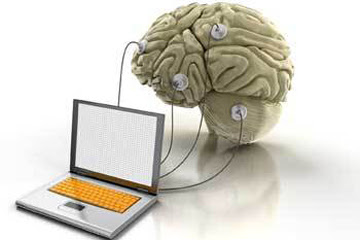
Breaking News
 Is The Government Coming For Our Seeds?
Is The Government Coming For Our Seeds?
 Looming ice storm could be among worst on record
Looming ice storm could be among worst on record
 The walls are actually closing in on Ilhan Omar and her husband…
The walls are actually closing in on Ilhan Omar and her husband…
 Tesla and XAI's Digital Agent Strategy
Tesla and XAI's Digital Agent Strategy
Top Tech News
 The day of the tactical laser weapon arrives
The day of the tactical laser weapon arrives
 'ELITE': The Palantir App ICE Uses to Find Neighborhoods to Raid
'ELITE': The Palantir App ICE Uses to Find Neighborhoods to Raid
 Solar Just Took a Huge Leap Forward!- CallSun 215 Anti Shade Panel
Solar Just Took a Huge Leap Forward!- CallSun 215 Anti Shade Panel
 XAI Grok 4.20 and OpenAI GPT 5.2 Are Solving Significant Previously Unsolved Math Proofs
XAI Grok 4.20 and OpenAI GPT 5.2 Are Solving Significant Previously Unsolved Math Proofs
 Watch: World's fastest drone hits 408 mph to reclaim speed record
Watch: World's fastest drone hits 408 mph to reclaim speed record
 Ukrainian robot soldier holds off Russian forces by itself in six-week battle
Ukrainian robot soldier holds off Russian forces by itself in six-week battle
 NASA announces strongest evidence yet for ancient life on Mars
NASA announces strongest evidence yet for ancient life on Mars
 Caltech has successfully demonstrated wireless energy transfer...
Caltech has successfully demonstrated wireless energy transfer...
 The TZLA Plasma Files: The Secret Health Sovereignty Tech That Uncle Trump And The CIA Tried To Bury
The TZLA Plasma Files: The Secret Health Sovereignty Tech That Uncle Trump And The CIA Tried To Bury
Several tech billionaires are openly or secretely funding broadband mind computer interfacing...

Johnson isn't alone in believing that "neurotechnology" could be the next big thing. To many in Silicon Valley, the brain looks like an unconquered frontier whose importance dwarfs any achievement made in computing or the Web.
According to neuroscientists, several figures from the tech sector are currently scouring labs across the U.S. for technology that might fuse human and artificial intelligence. In addition to Johnson, Elon Musk has been teasing a project called "neural lace," which he said at a 2016 conference will lead to "symbiosis with machines." And Mark Zuckerberg declared in 2015 that people will one day be able to share "full sensory and emotional experiences," not just photos. Facebook has been hiring neuroscientists for an undisclosed project at Building 8, its secretive hardware division.
Even when speaking to a computer program like Alexa or Siri, you can convey at most about 40 bits per second of information and only for short bursts. Compare that to data transfer records of a trillion bits per second along a fiber-optic cable.

 Nano Nuclear Enters The Asian Market
Nano Nuclear Enters The Asian Market


